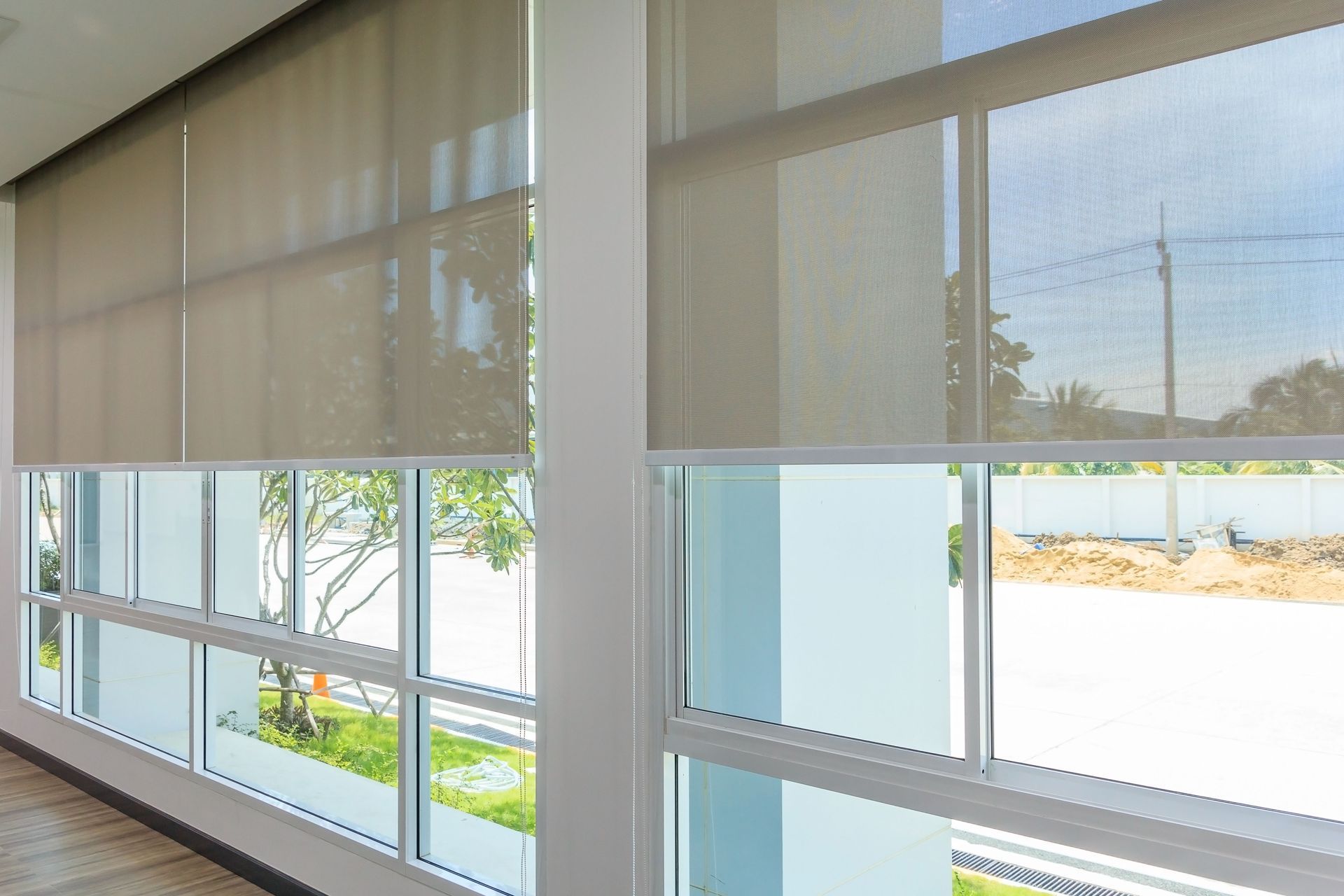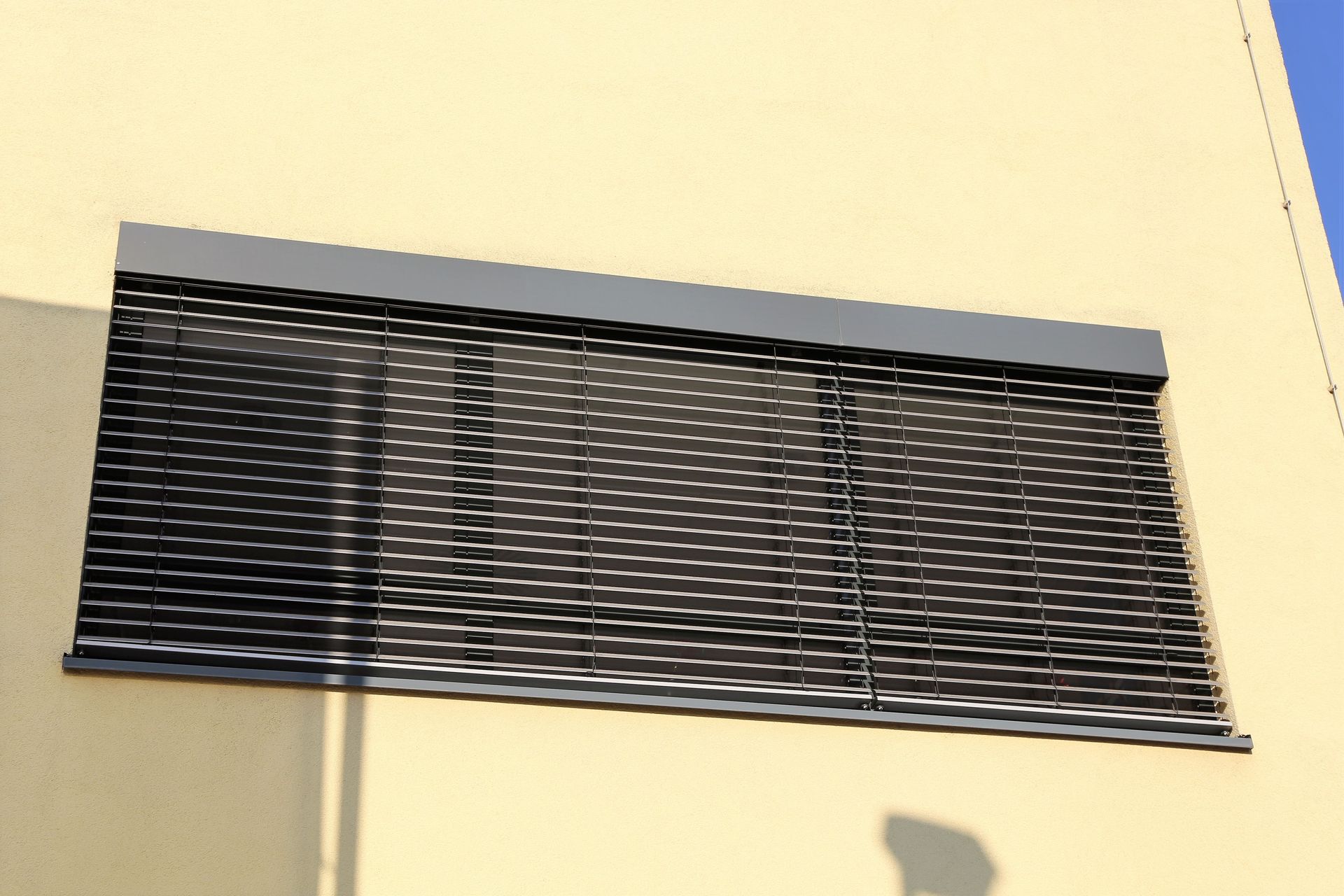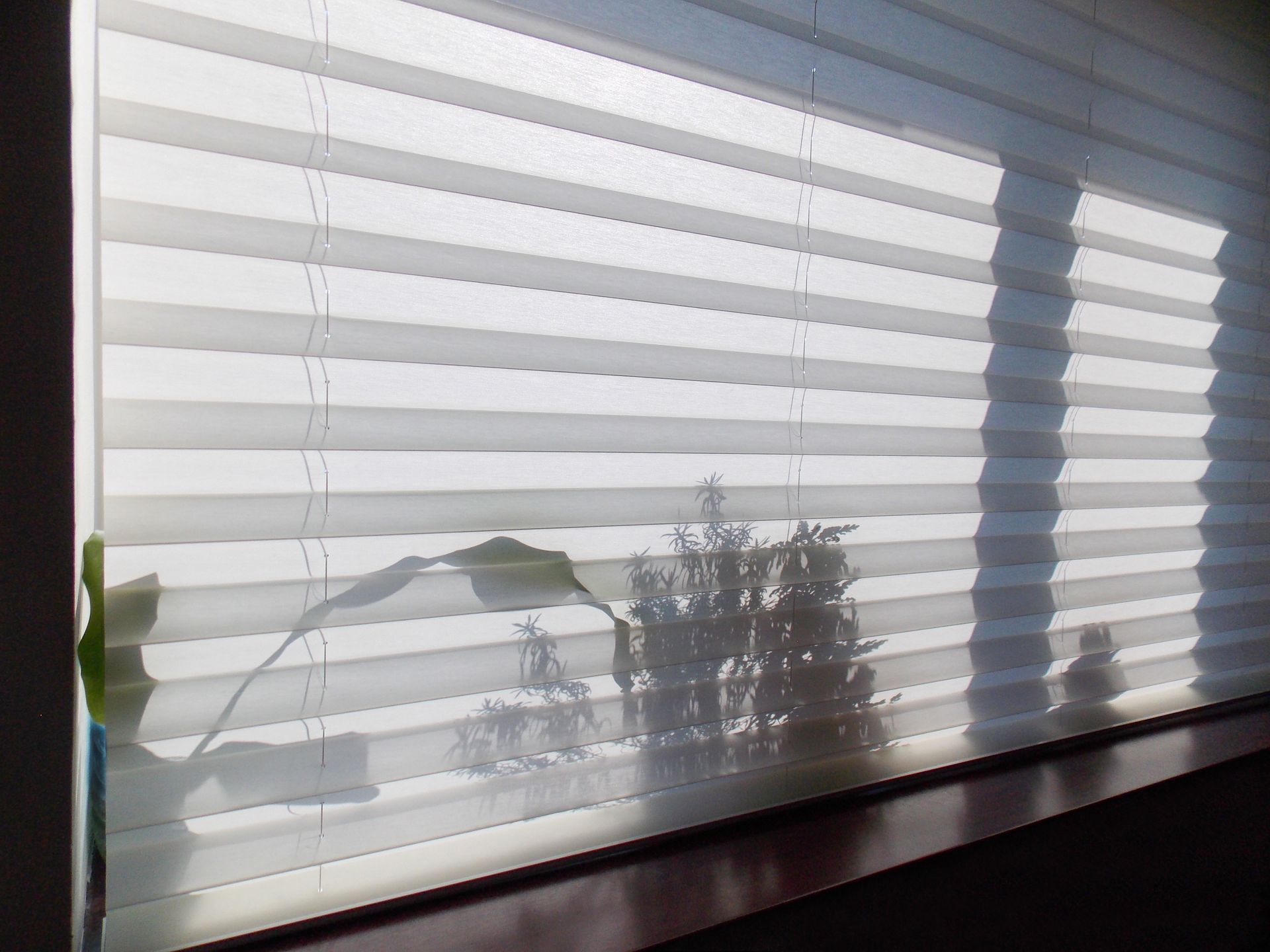Understanding the Difference Between Solar and Cellular Shades
When it comes to window treatments, solar and cellular shades are popular choices for enhancing both the aesthetic and functional aspects of your living space. These shades not only add privacy and style to your home but also offer energy-saving benefits. However, each type has its own distinct characteristics, and understanding these can help you make the best decision for your specific needs. In this post, we'll delve into the differences between solar and cellular shades to help guide your selection.
Designed for Light Deflection
Solar shades are designed to reduce glare and block harmful UV rays while maintaining visibility to the outdoors. They are made from a mesh-like fabric that acts as a barrier against sunlight, making them ideal for rooms that require a significant reduction in glare, such as living rooms or offices. The openness of the weave impacts the amount of view and light control—the tighter the weave, the more privacy and light blocking it provides, though this might mean a compromise on outside visibility.
Designed for Energy Efficiency
Cellular shades, on the other hand, are engineered for energy efficiency due to their unique honeycomb structure. This design effectively traps air within the cells, providing insulation and helping to maintain temperature control in your home. According to the U.S. Department of Energy, in cooling seasons, cellular shades can reduce unwanted solar heat through windows by up to 60%, reducing the total solar gain to 20% when installed with a tight fit. This makes them an excellent choice for reducing energy costs as well as providing ample privacy.
Designed for Customization Options
Another crucial aspect to consider is the versatility and customization options available with each type. Solar shades offer varied levels of openness and color options, which can be matched to the aesthetics of your home. Meanwhile, cellular shades are available in a range of pleat sizes and fabric opacities, from sheer to blackout, allowing you greater control over light and privacy. Both offer motorization options, making them convenient for high and hard-to-reach windows.
Both solar and cellular shades provide effective solutions for window coverings, each with unique benefits tailored to different needs. If energy efficiency and insulation are your top priorities, cellular shades are the superior choice. However, if you require glare reduction while preserving your views, solar shades are ideal. Understanding these differences can drastically impact your living environment, boosting comfort and style in your home. If you're interested in commercial solar shades, make sure to contact Midwest Blinds today!









Share On: